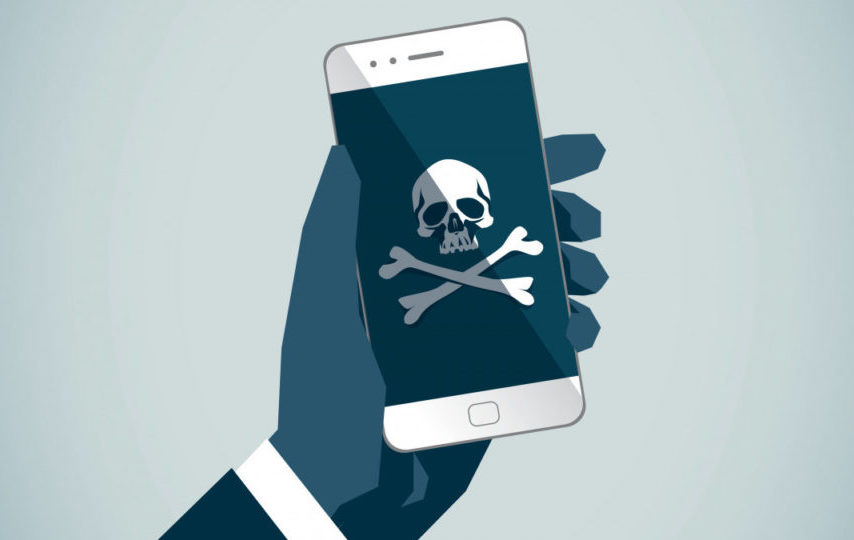The number of smartphone and tablet users is growing rapidly; while hackers and cybercriminals are also modifying their ways on how to breach security and information. In this article, we will provide some helpful tips on how to secure your mobile gadgets against malware and other cyberattacks.
Mobile Malware Continues to Surge
Mobile threats, particularly malware and ransomware attacks, continue to grow year after year. According to the latest findings from Symantec cybersecurity review, there are over 24,000 mobile apps blocked daily. The number of new mobile viruses and malware also increased by 54% in 2017. In addition, mobile users are facing more risks from “grayware,”—these are apps that are not completely malicious, but can cause a lot of system problems with your gadgets.
These alarming statistics only show how users should be more responsible and take extra precautions when using their gadgets. Whether for personal or business errands, you need to be aware of your activities while using your phones.
To give you more ideas, here are some tips on how to protect your mobile gadgets against malware and other mobile threats:
TIP #1: STAY PROACTIVE
The first thing you can do to avoid security and data breaches from your mobile devices is to be proactive at all times. Be cautious of your activities online when using your phones or tablets. Make sure to keep your system and software updated. Mobile threats such as malware-laden apps, phishing scams, and downloadable viruses can easily infect your device if not updated accordingly.
Another thing you should have in check is your password. As much as possible, update your password every once in a while. Make sure to use stronger passwords for all your accounts and apps stored in your mobile device. IT and cybersecurity experts strongly recommend using password generator apps such as LastPass, Dashlane, Keeper Security, and RoboForm. These apps will help you manage and come up with stronger passwords for your accounts and devices.
TIP #2: NEVER JAILBREAK YOUR PHONE
There are several reasons you should never jailbreak your mobile devices. First, this may cause you to get behind of all the important system and software updates. Another thing is it could leak security documents and make your device more vulnerable to different attacks.
Jailbreaking may seem convenient for many users, but this will become less useful over time. Since this process involves reconfiguring the actual iOS, a lot of important features from your iOS service provider will be restricted or blocked. In addition, when you jailbreak your gadgets, you ought to lose the warranty of your device, as well. You can’t even bring it to the main service center in case there are problems linked to your device. This means you’ll have to rely on your own technical know-how to resolve issues and protect your device.
TIP #3: GO ONLY TO OFFICIAL APP STORE
In line with TIP #1, it is best to avoid other sites offering free or cheaper rates for certain apps or programs. Usually, these sites are loaded with viruses and malicious content. This is actually one of the most common methods used by hackers and cybercriminals. For your own safety, go to official app stores like the Apple’s App store and Google’s Play store. You can also check any software and system updates here to avoid falling for any untrusted or unsolicited update notifications.
Users who get their apps from official app stores only have a 0.1% chance of getting infected by malware attacks. On the other hand, about 0.7% of devices get infected by viruses and malwares from downloading outside their main app service centers.
Site loading—or getting applications via website also imposes a lot of risks. This exposes your devices vulnerability to cyber criminals as they can decode or crack your system and inject them with malicious codes. Take note that most of these sites are not protected by your main network.
Lead Engineer for Android security at Google reminded smartphone users that downloading from unofficial stores is a risky behavior. “Potential harmful applications at 7 to 10 times more likely to be installed outside of Google Play,” Ludwig added to his statement.
TIP #4: ALWAYS LOCK YOUR DEVICES
Bear in mind that if someone gain access to your device, you are exposing your devices to various threats. To be safe, activate all auto-lock options to all your devices. This can add an extra layer of safety and prevent hacking. Generally, this feature will require users a password after a few minutes of idle time. It will also require a strong PIN to secure the device.
Today, there are several advancements you can explore to protect your device from unauthorized parties. One of the most popular today is the biometrics, wherein the system uses fingerprint scanners or facial recognition. The multifactor authentication is also an ideal option that provided added security.
In addition, remote wipes systems are also growing in popularity. This allows you to delete data remotely in case your device gets stolen.
TIP #5: CHECK YOUR MONTHLY STATEMENT
Just like PC malware, which is designed to attack network system and steal sensitive account information, hackers today can use mobile malware to steal money. They can do this in many ways. First, they can buy and sell productions online by using your credit card information stored on your device. In some cases, they may also threaten to share private information from your device in exchange for money.
There are also malwares, which allows hackers to send messages to different service centers using your identity. And just recently, Android detected a mobile malware that allows hackers to inject bots and steal information.
Today, most of these malware attacks are hide to detect, especially without comprehensive antivirus and antimalware software. Make sure your smartphones and other gadgets are well-equipped with the best mobile antimalware programs. Some of the recommended brands today include 360 Safeguard, Avast Antivirus, AVG, and Kaspersky.
Again, buy software from authorized vendors. Go to your official app store when purchasing such products.
About Author
John Ocampos is an Opera Singer by profession, and a member of the Philippine Tenors. Ever since, Digital Marketing has always been his forte. He is the CEO of MegaMedia Internet Advertising Inc., and the Managing Director of Tech-Hacker. John is also the current SEO Manager of Softivire New Zealand and Softvire Australia – the leading software ecommerce company in Australia.





